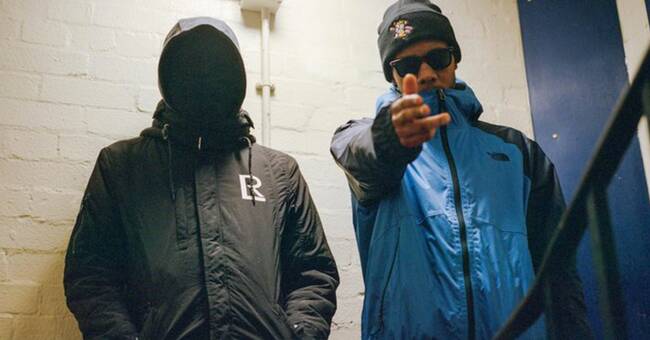Last week, the Sweden Democrats opened up to limit gangster rap in public service.
The party points to an obvious link between music and gang crime.
And since then, several voices have been raised.
Bulletin columnist Carolin Dahlman believes that the genre is directly harmful to young people.
- These are rappers who sing about murder, they sing about revenge and about conflicts.
They have a terrible view of women.
I think it is something to watch out for because culture shapes people, values and society, she says.
London police's offensive against rap
The debate over whether gangster rap has a bad influence on young people has been going on for a long time.
In the UK, the issue has been hot for several years.
It has mainly been about the subgenre drill, which has grown big in London during the 2010s.
The texts are not infrequently about violence and crime and may contain threats.
Following the stabbing of a 15-year-old boy in London in 2017, the music has been pointed out as dangerous by the police.
The reason is that one of the perpetrators is a rapper, who before the act had released a song where he raps about a knife attack.
Police and the judiciary make connections between the music genre and the increasing number of stabbings in London and decide to go on the offensive against drill.
The law enforcement force gets Youtube to download over 100 music videos, they ban songs and in 2019 the music duo Skengdo & AM are sentenced to probation for having performed one of their forbidden lyrics.
Texts are used as evidence
Other drill artists have been banned from rapping about certain people, mentioning sensitive events or areas in their songs and the lyrics have often been used as evidence in trials.
In the last three years, Youtube has downloaded over 500 music videos, according to a British police report reported by the New York Times.
But the method gets criticized.
Many claim the rappers' artistic right to express themselves and the bans are similar to the fight against punk in the 1970s.
Several rappers say that censorship of the genre works counterproductively - they are prevented from engaging in music that could lead out of crime.
The music critic: Prohibition can have the opposite effect
In Sweden, the debate so far has mainly been about the gangster rap's place in public service.
Music critic Johannes Cakar thinks that you are out on slippery ice when you talk about bans.
- It feels like you have had this debate many times over the years.
There have been gambling violence, Martin Scorsece films and the American hip hop scene.
You never really land in anything, I do not think you do now either.
If the gangster rap were banned from public service, it is not impossible that it would have the opposite effect.

